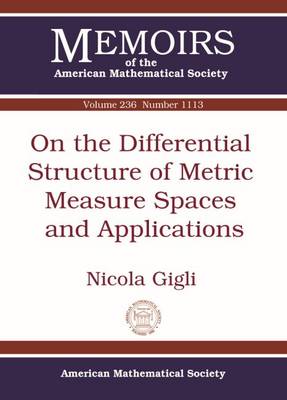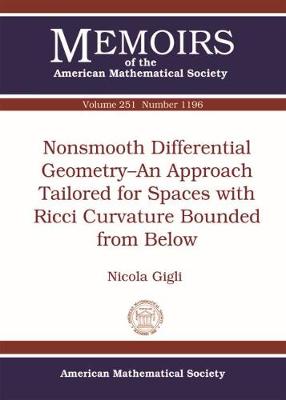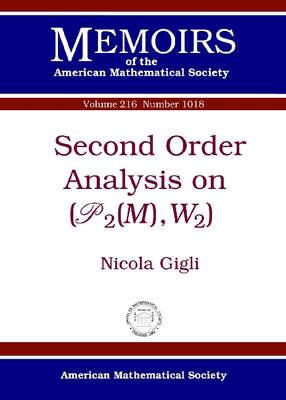Memoirs of the American Mathematical Society
3 total works
On the Differential Structure of Metric Measure Spaces and Applications
by Nicola Gigli
Published 30 July 2015
The main goals of this paper are:
- (i) To develop an abstract differential calculus on metric measure spaces by investigating the duality relations between differentials and gradients of Sobolev functions. This will be achieved without calling into play any sort of analysis in charts, our assumptions being: the metric space is complete and separable and the measure is Radon and non-negative.
- (ii) To employ these notions of calculus to provide, via integration by parts, a general definition of distributional Laplacian, thus giving a meaning to an expression like $\Delta g=\mu$, where $g$ is a function and $\mu$ is a measure.
- (iii) To show that on spaces with Ricci curvature bounded from below and dimension bounded from above, the Laplacian of the distance function is always a measure and that this measure has the standard sharp comparison properties. This result requires an additional assumption on the space, which reduces to strict convexity of the norm in the case of smooth Finsler structures and is always satisfied on spaces with linear Laplacian, a situation which is analyzed in detail.
Nonsmooth Differential Geometry-An Approach Tailored for Spaces with Ricci Curvature Bounded from Below
by Nicola Gigli
Published 1 January 2018
The author discusses in which sense general metric measure spaces possess a first order differential structure. Building on this, spaces with Ricci curvature bounded from below a second order calculus can be developed, permitting the author to define Hessian, covariant/exterior derivatives and Ricci curvature.
The author develops a rigorous second order analysis on the space of probability measures on a Riemannian manifold endowed with the quadratic optimal transport distance $W_2$. The discussion includes: definition of covariant derivative, discussion of the problem of existence of parallel transport, calculus of the Riemannian curvature tensor, differentiability of the exponential map and existence of Jacobi fields. This approach does not require any smoothness assumption on the measures considered.


